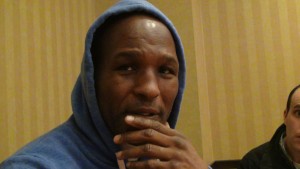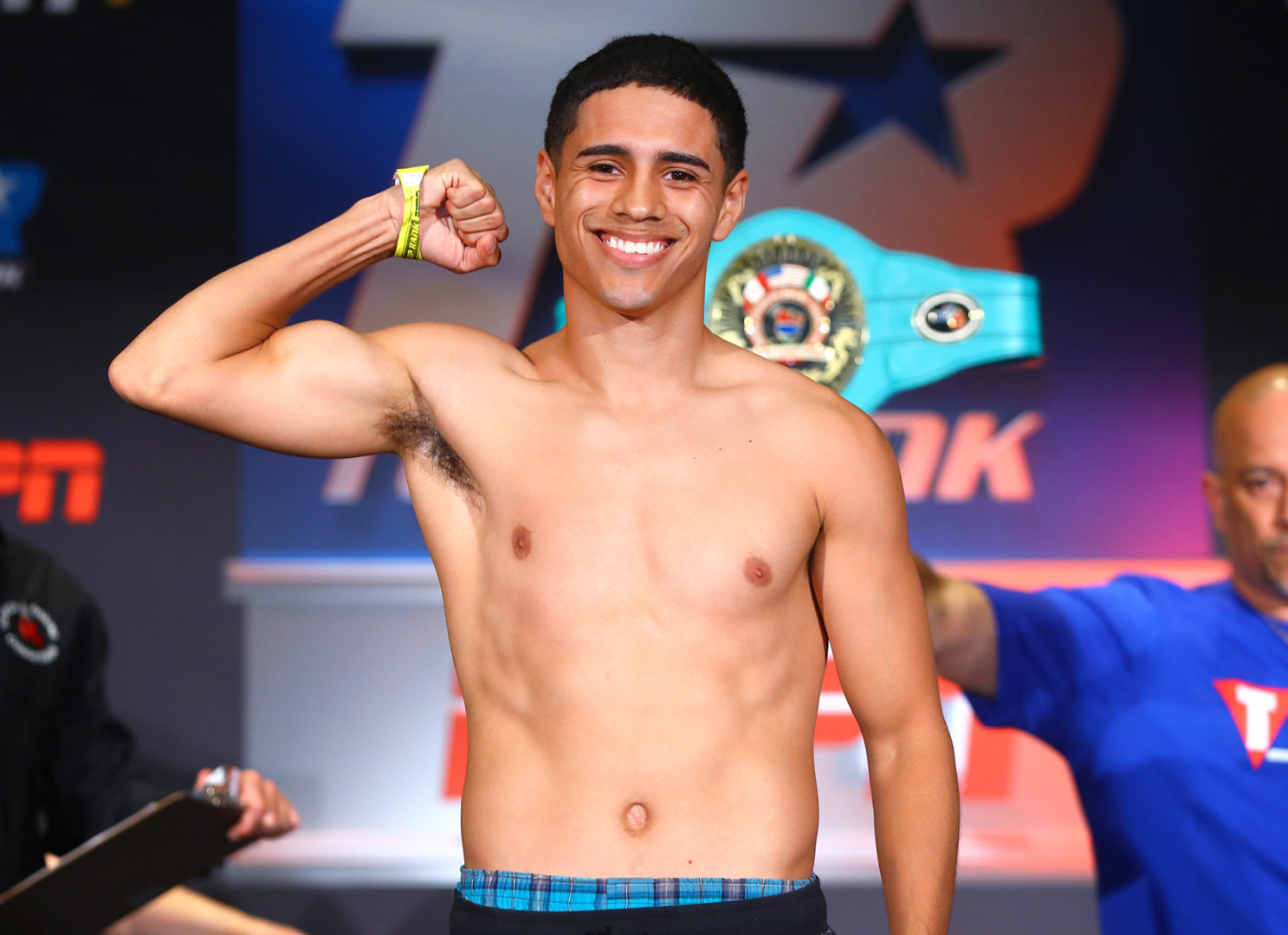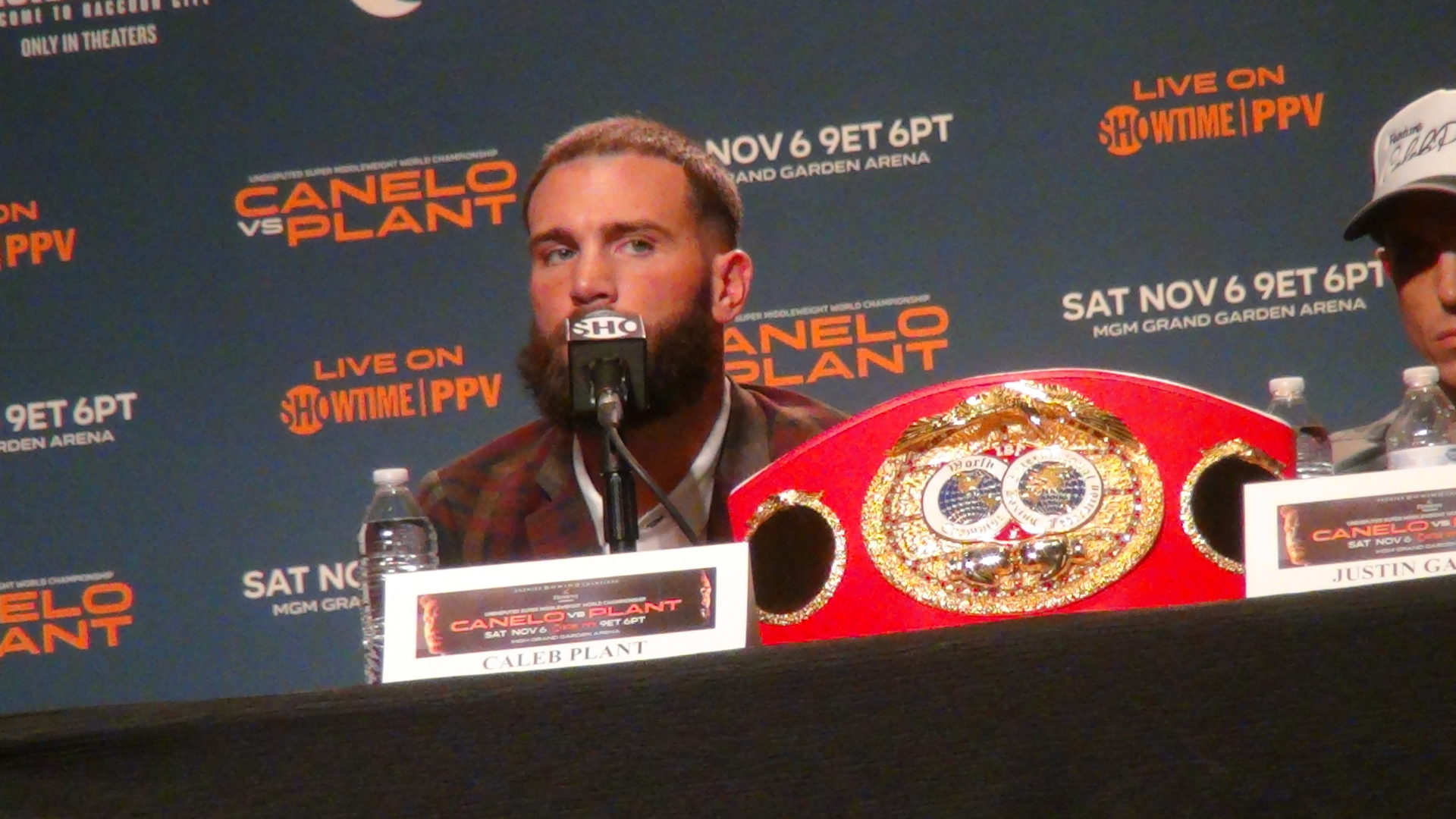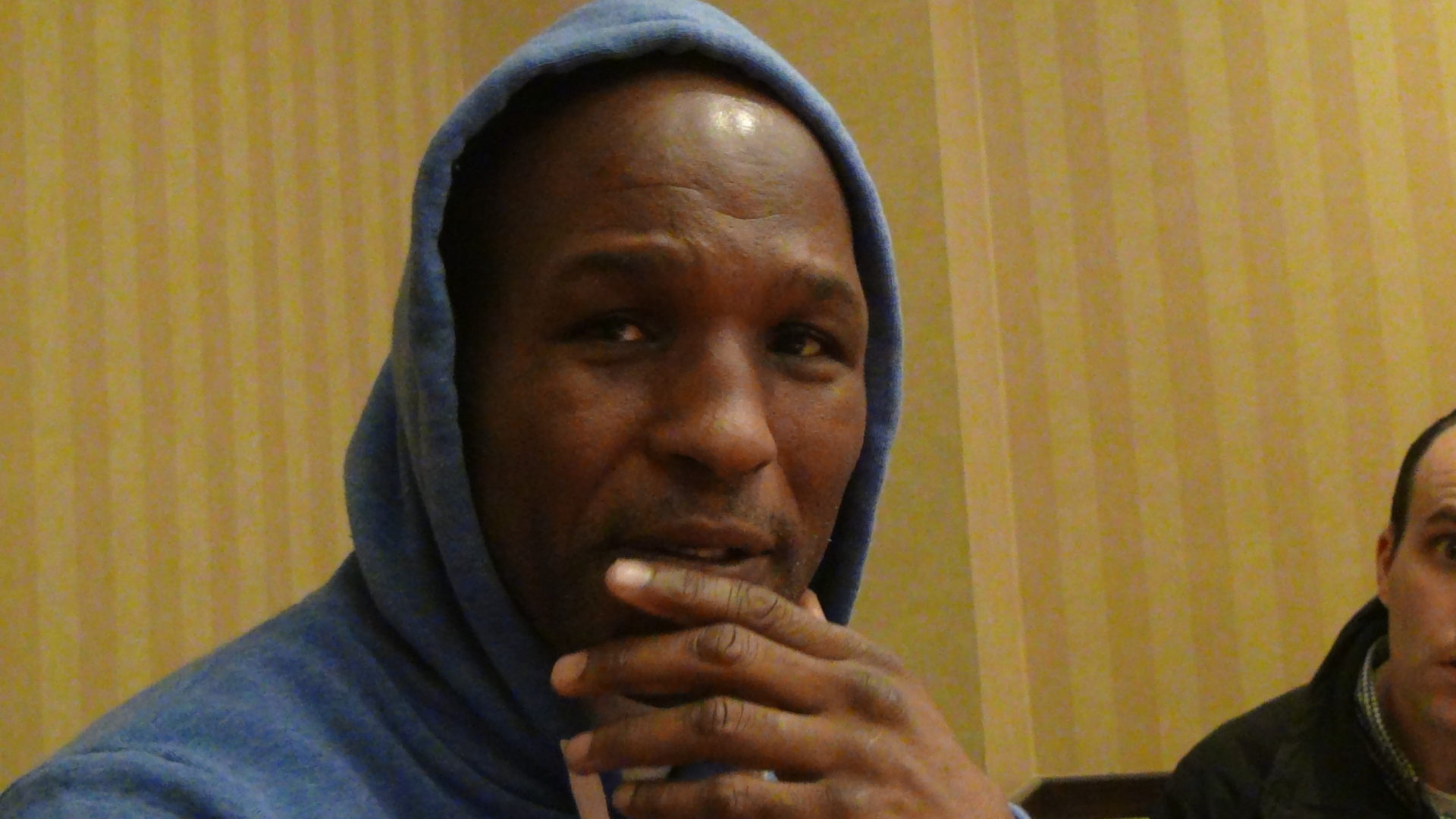By Norm Frauenheim-

Shtick is often strategy and sometimes dangerous. Bernard Hopkins knows that, perhaps better than anybody. He’s been using it like a survival skill throughout an uncommon career that has always been about being ready for fights waged in all of their various forms, from brutal to subtle.
Hopkins was at it, all over again, during a news conference Wednesday a few days before what he says will be his last bout within the ropes Saturday night against Joe Smith Jr. at The Forum in Inglewood, Calif.
Hopkins (55-7-2, 32 KOs) sat on one side of the dais, looking like a hawk searching for an opening – rhetorical prey – to appear. Sure enough, there it was.
Smith (22-1, 18 KOs), a laborer with an active union card from New York’s Local 66, was called the common man in an introduction from his promoter Joe DeGuardia. Smith is a good story. But this was Hopkins’ moment. His stage. Smith’s story was Hopkins’ opportunity.
The best fighters can turn a foe’s strength into a weakness and that’s what Hopkins tried to do nearly three days before opening bell to his planned finale in an HBO-televised light-heavyweight bout (10 p.m. ET/PT).
“I listen to what people say,’’ Hopkins said in his turn at the bully pulpit. “I listen to words, because words give you some kind of blueprint on what a person is thinking. What he’s about.
“How articulate, or whatever, it’s not fully judging, but it gives you some type of platform to work with. Joe DeGuardia said ‘common.’ ‘’
Hopkins went on to say he is not.
In a theatrical gesture, he looked directly at Smith and then delivered words that he has so often used as psychological blows – punches before the opening bell.
“Special,” Hopkins said as he pointed to himself.
Then, he paused, almost as if he had rehearsed it.
“Common,” he then said, pointing at Smith.
Smith, a common man with a common name, never blinked. He must of felt like a prop, albeit a dangerous one if the power he exhibited in his June stoppage of Andrzej Fonfara is any sign.
It wasn’t as if Smith could have done or said much. Hopkins was on a roll.
“Common man, special man,” Hopkins repeated. “Which one you want?
“I want the special.’’
He has been, in large part because of the defiance that has driven him since the day he walked out of Graterford Prison after serving five years on a robbery conviction. Then, he was going to follow the common path of an ex-con. When he was released, warden Buddy Rush told him he’d be back in six months. Hopkins promised he wouldn’t. Turns out, that was the first in a lifetime full of fulfilled promises. Rush heard what sportswriters, promoters, lawyers and fans have been hearing from him ever since.
Hopkins’ life has been about doing what everybody says he can’t. There were 20 successful defenses of the middleweight title. There was the victory over Felix Trinidad. And another one over Kelly Pavlik. Nobody beats Father Time. Then again, no 49-year-old has ever held a world-title belt, either. Now 51, Hopkins will challenge Father Time once more against the 27-year-old Smith.
For anybody else in the post-50 crowd, the task would just be foolish. But Hopkins has made it special, because of his cunning and – also his clever mastery of every aspect of what it takes to be a fighter.
But there’s another element, too. He understands what it is to be common. His common touch is part of his charm. Writers who have been around him throughout his long career know he remembers names and faces. Then, he’ll always be remembered for carrying that Costco card, which is a lot more familiar to the common man than one of Floyd Mayweather’s Jr.’s Bugattis ever will be.
He keeps his common roots close to him, almost as if they were a touchstone of motivation. Hopkins’ identity as an inmate is a number he never forgets.
“He’s from the Union, I’m from the Union of the State Correctional Facility of Gratersford,” Hopkins said, talking to Smith. “I never bought silk underwear, but let me tell you what I did keep in my pocket. It’s called a Y-4145 prison I.D. card with my picture on it.’’
He went on to say that the prison I.D card reminds him of who he was, who he is and why he fights.
“You can always be common, it’s so easy to be common,” said a special fighter, who has taken the commonplace to a place never envisioned.
























